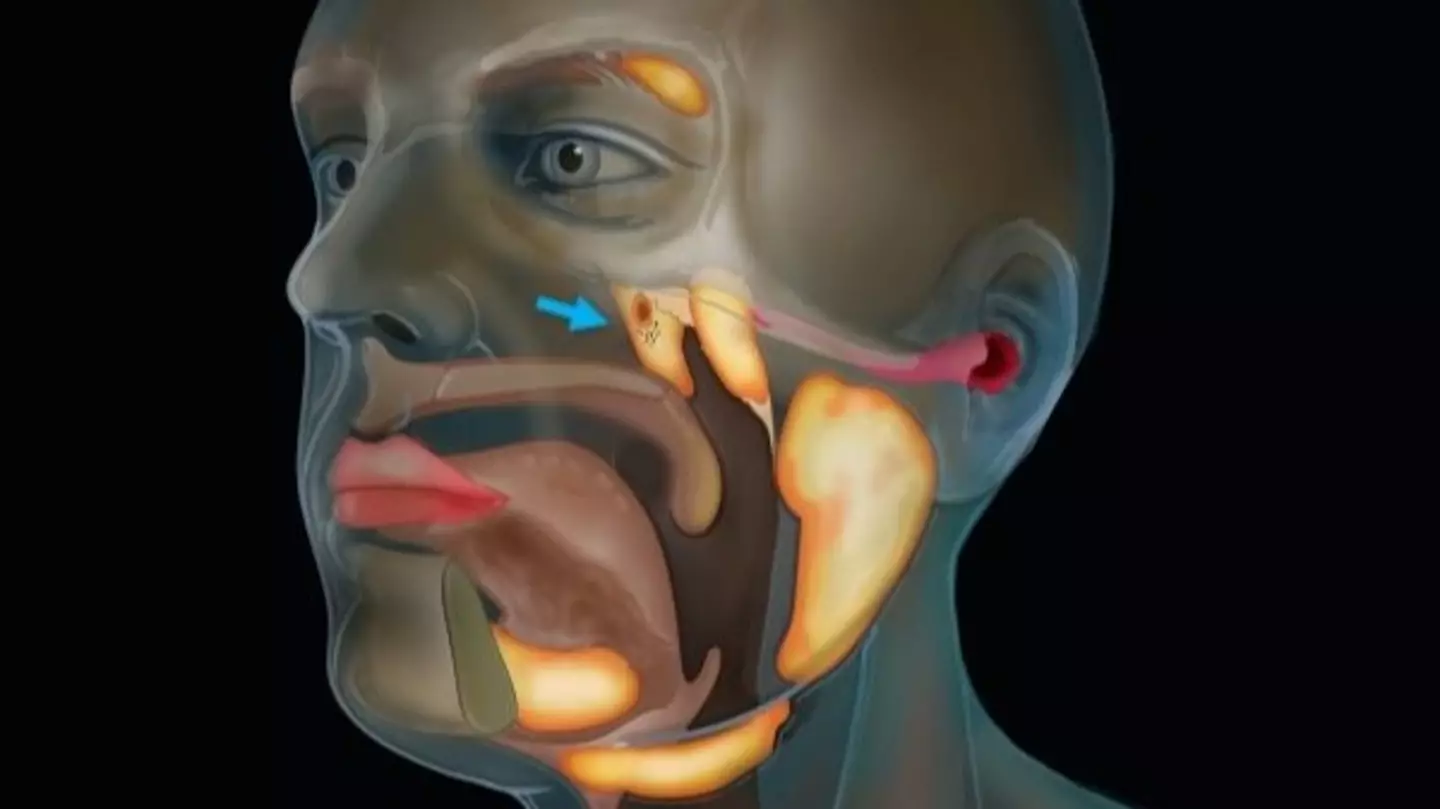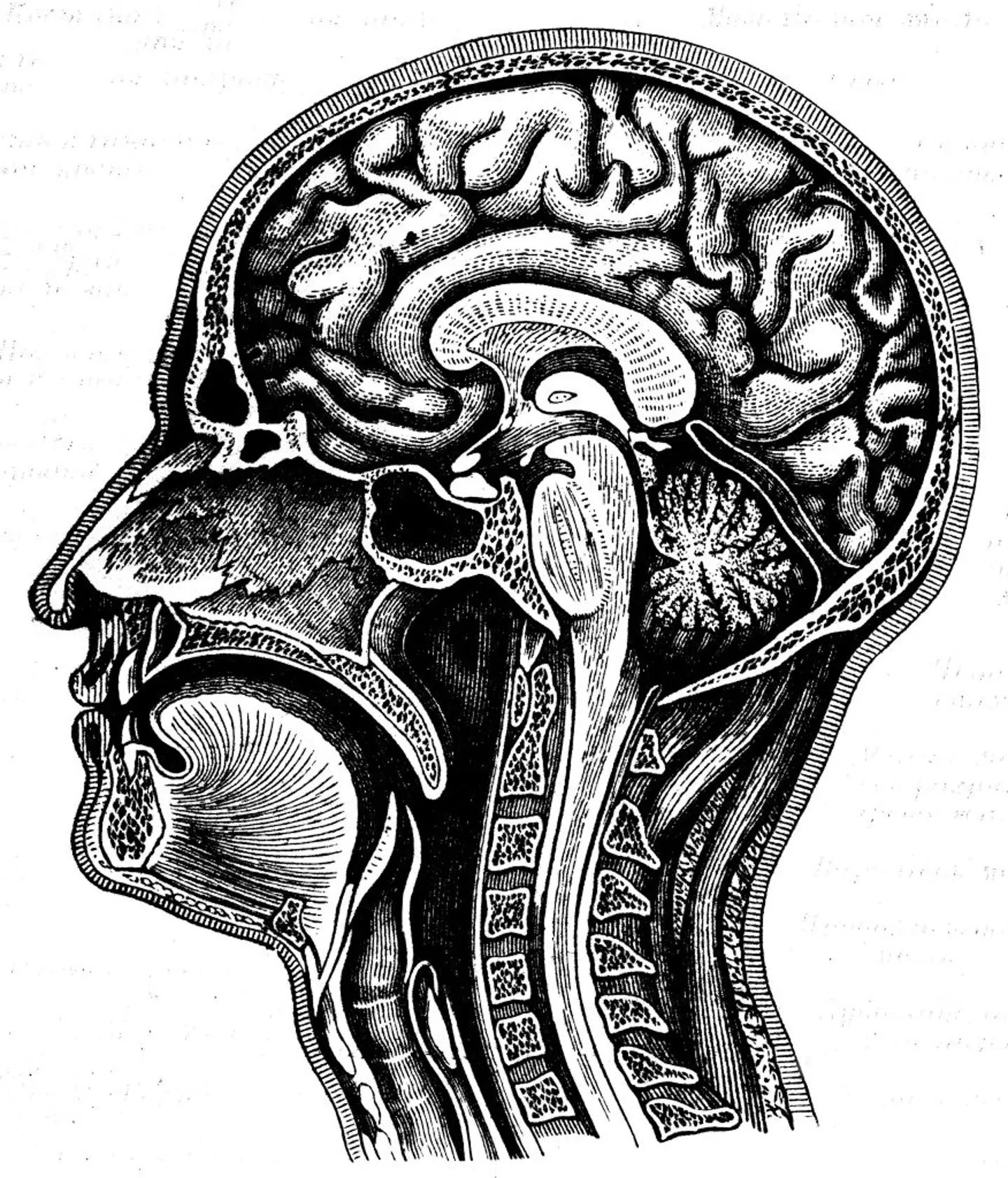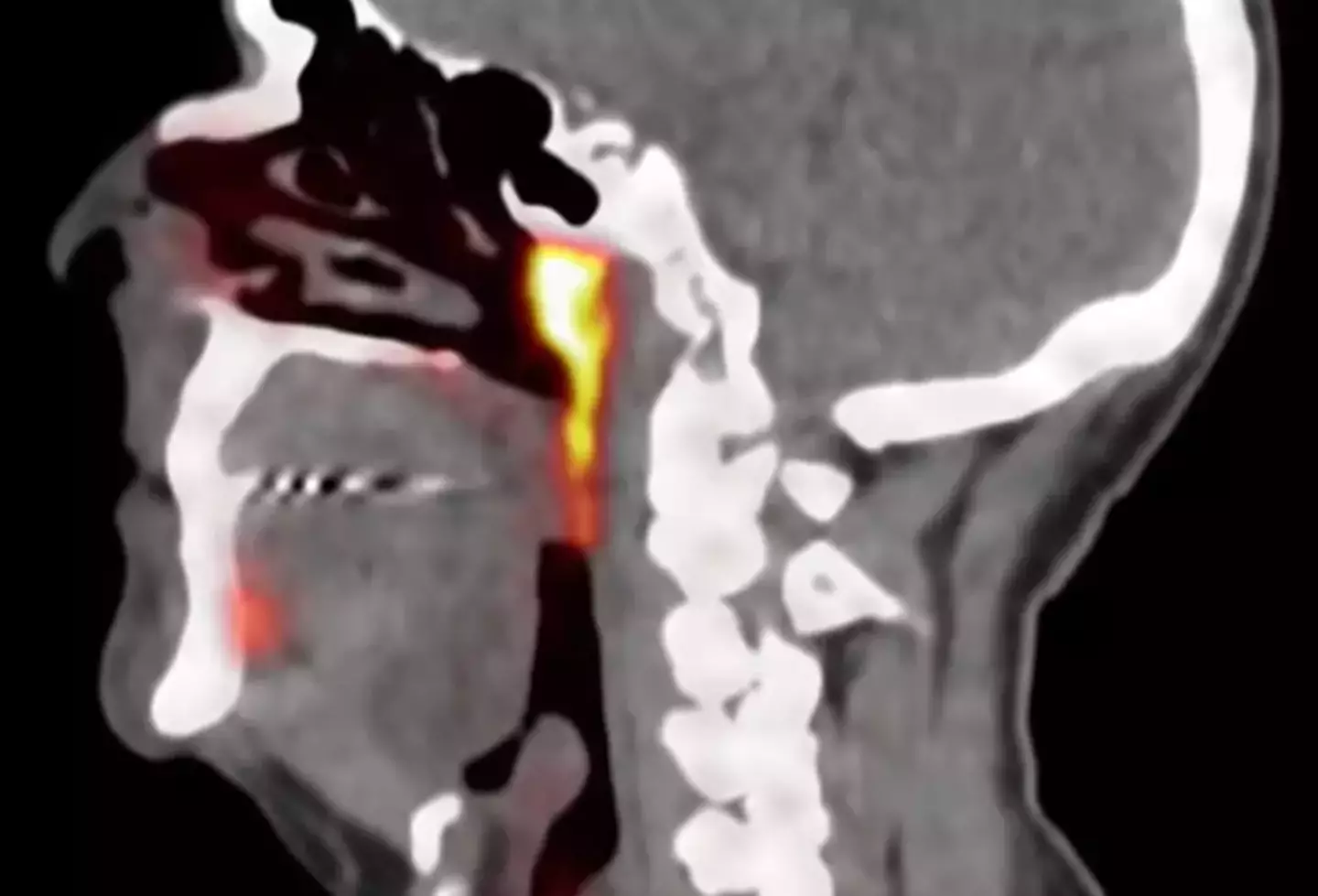
Apparently, there's a new organ in the human body we never knew about before.
The capabilities of the human body never cease to amaze, though you'd assume by now in the 21st century that we'd know all about it.
Well, that theory has been rumbled after a team of scientists shockingly stumbled across an organ that had never been seen before entirely by mistake - and they even had the opportunity to christen it with its new name.
The researchers from the Netherlands Cancer Institute were examining prostate cancer in September 2020 when they made the eureka discovery, though the organ sits nowhere near the prostate, in fact, it's right at the other end.
Advert
The surprise organ has been hiding out under our noses this entire time, or more specifically, right behind it - and it serves a pretty vital function.

Its discovery could help to explain why cancer patients who receive radiotherapy treatment can suffer from dry mouth and swallowing issues as the previously undiscovered part sits inside our head, just beneath the face.
In case you're wondering how a team of scientists examining prostate cancer ended up locating a new organ in the head, it all came to light when they were conducting scans.
While studying the cancer, they carried out CT and PET scans on patients that had been injected with radioactive glucose, in theory making tumors show up by glowing on the scans.
While carrying out the scans, the team noticed two areas within the heads of the patients were glowing more than they anticipated - and eventually pieced together that there was a secret set of salivary glands tucked up in there.
The team decided to give it a fitting name, the tubarial salivary glands, since it is found behind the nose and in the space where the nasal cavity joins the throat.
As for what it does, the glands 'lubricate and moisten the area of the throat behind the nose and mouth'.

While the scientists were shocked the glands had gone on existing undetected for decades, Dr Wouter Vogel, radiation oncologist at the Netherlands Cancer Institute, explained it's probably because the glands are so tiny.
The doc said they were only discovered due to 'very sensitive imaging' and are 'not very accessible'.
He said: "People have three sets of large salivary glands, but not there.
"As far as we knew, the only salivary or mucous glands in the nasopharynx are microscopically small, and up to 1,000 are evenly spread out throughout the mucosa. So, imagine our surprise when we found these."
Alarmingly, Dr Vogel said a 'single misdirected zap' in medical treatments could permanently damage the organ, though 'nobody ever tried to spare them' before, which makes sense since no one knew they were there.
They now hope the discovery will alleviate some of the side effects that come with cancer treatments and radiotherapy, as the scientists believe the treatment could be putting uncomfortable pressure on the tubarial salivary glands.
Now that it's known, they say the 'next step' comes down to figuring out how to preserve the organ during treatment.
Topics: Science, Health, World News, Netherlands, Cancer